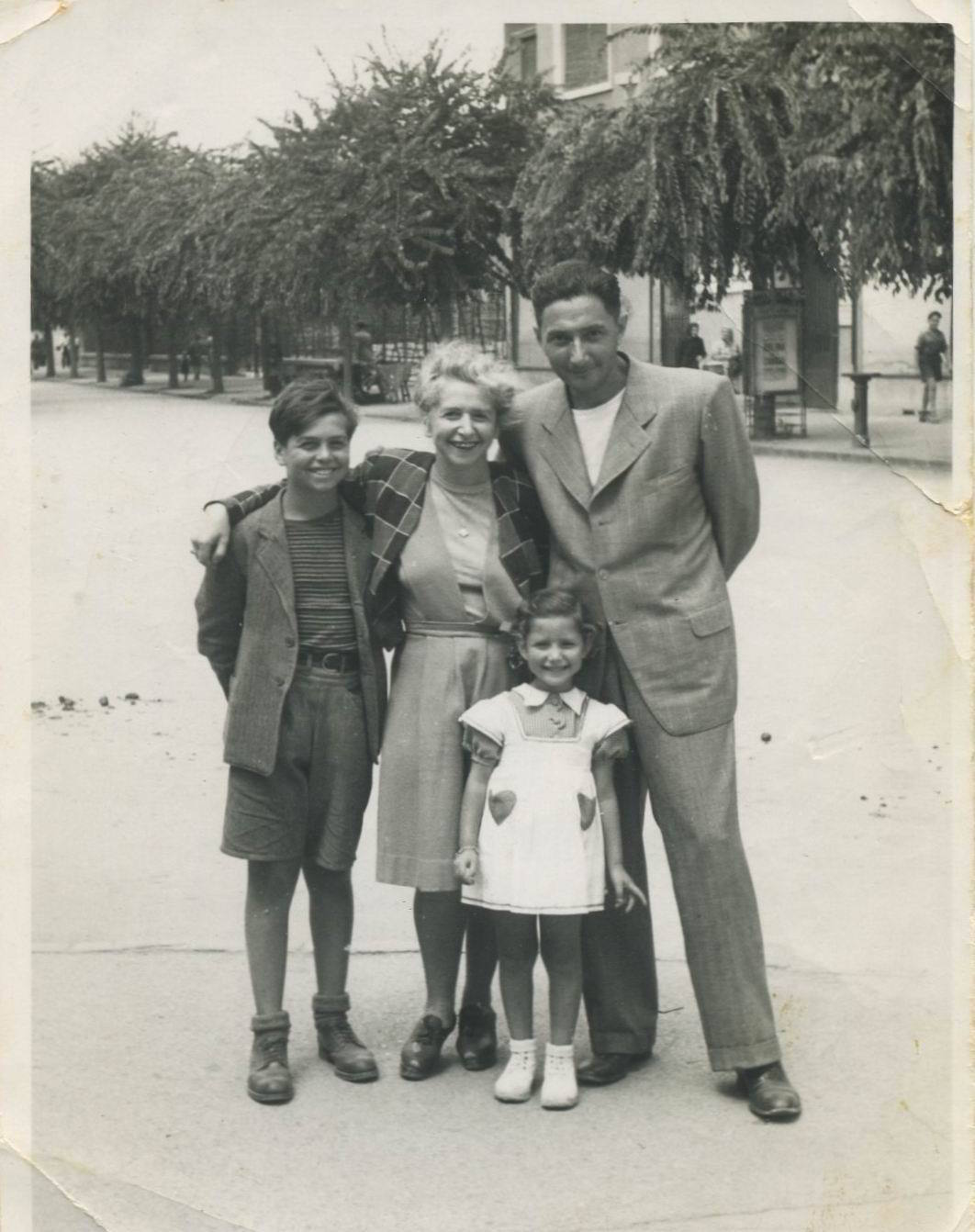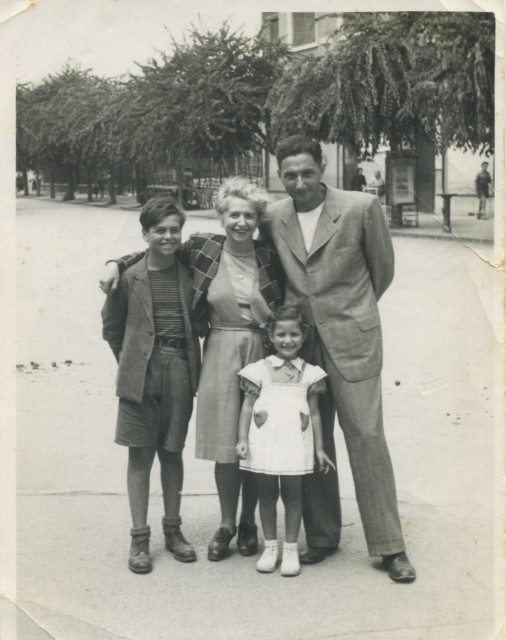
Ruth Ebenstein’s uncle Gyuri, 13; grandmother Lili, 38; grandfather Geza, 36; and mother Noemi, 5. Her grandfather was reunited with his family after being released from a Russian POW camp.
New shoes – and a new lease on life: a Jewish Christmas story in a concentration camp.
On Christmas Eve 1944, my grandmother urged my uncle, then 12 years old, to sneak out of the concentration camp where they were imprisoned at Strasshof, nearly 15 miles east of Vienna, to go begging.
People are charitable around Christmastime, Grandma Lili said to her son, Gyuri (George in Hungarian). Ask for scraps. Anything they can spare. Tell them that we’re on the verge of starvation.
Tell them that your 3-year-old sister cannot get off the bed because she’s outgrown her shoes.
I don’t want to beg, retorted the boy. I’d rather steal.
That’s wrong, scolded his mother. We are not thieves!
They argued back and forth. After a time, her son acquiesced.
READ: A blue, blue Christmas
In the dark of night, Gyuri snuck out of the camp between two wooden slats and walked the nearly four miles to Deutsch-Wagram, the closest town, shivering in his tattered clothing. On the outskirts he happened upon a house, secluded from the others. He walked up the path and knocked on the front door.
A woman opened that door. She was probably alone, her man far away, fighting in the war, her children asleep in their beds. And it is likely that she suspected that the young boy was Jewish.
The 12-year-old pieced together in German exactly what his mother had told him to say.
Did he hide his ambivalence about begging? Did he charm her even then with his gift of gab?
Come back tomorrow, whispered the woman.
The next day, my uncle returned. The woman opened the door with a smile. She piled his hands with bread, clothing, a pair of shoes that her child had outgrown.
And… a pair of socks.
The woman had knitted warm woolen socks for my mother.
READ: Christmas wins (in the December culture wars)
Nestled in socks and shoes that fit, my mother scooted off the bed in delight. Her ragged shoes were passed on to a younger child who was also living in the camp. My mother joined her mother and older brother in feasting on the provisions they were given. They shared their unexpected bounty with the entire barracks. It was a quiet celebration of human kindness around Christmastime.
In April 1945, my mother, uncle and grandmother were liberated by the Russians. And it was those very socks and shoes that my mother wore as she trekked some 28 miles over two days to Bratislava on her walk to a new life.
She was three months shy of 4 years old.
Grandma Lili had a gorgeous laugh and a mischievous sense of humor. Even during the Holocaust. She used to tease my mom, you can tell folks that you spent your childhood in the Vienna Woods.
To the anonymous Righteous Gentile, I thank you.
Thank you for knitting with your hands the pair of socks that warmed my mom’s little feet and skinny legs. Thank you for finding those shoes and clothing and giving them to a stranger. Thank you for sharing your bread during wartime. In the despair of a battered land, cold and snowy, when many hearts were closed and evil reigned and death was more likely than life, especially for Jews, you gave them light. You gave them kindheartedness.
You gave them a measure of sustenance that I can only imagine.
If you had not looked past the years of poisonous hatred and anti-Semitism that had enveloped your country in order to rally to help my family, would they have survived to tell this story?
(Ebenstein is an American-Israeli writer, health activist and public speaker. She is writing a memoir titled “How to Laugh (and Cry) Through Breast Cancer.” This essay was first published in USA Today.)





